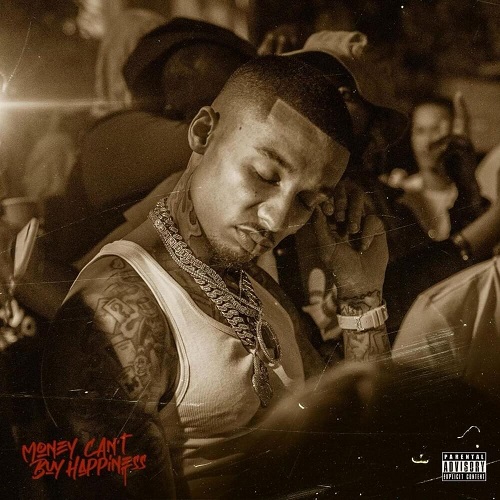Some time ago, on the forum of this very blog, one of the regulars compared Dave to Abd al Malik, a quite embarrassing French rapper. Ouch, that hurts… However, it is not entirely unfounded. Both rappers, indeed, share this unnerving way to talk with way too much gravity, on beats full of pathos. Both have a disposition for contrition and whining.

There are two significant nuances, though.
First, whatever some biased people are willing to sell, music from the UK has ridiculed ours for more than half a century. And even though nationalistic partisans of French pop or French rap might differ, it doesn't look ready to change.
Also, more importantly, Dave still relates to the traditional rap context, the gangsta one. This is all about a cocky thug, a swaggering crook obsessed with money and street life.
This judgment also applies to Dave's acolyte and counterpart, the one who featured a while ago on his hit single "Funky Friday", and who just released his second album.
After other successes such as his Tables Turn mixtape or the Third Avenue album, Fredo went a bit too far into pop territories with "Hickory Dickory Dock", a track from 2020 he's disowned since then, and he removed from the streaming platforms. After a few intense months in his life – a little daughter was born, his close friends Billy Da Kid and Muscle Gotti died in tragic circumstances – Money Can't Buy Happiness goes back to the basics: this is about being a dealer and a street hustler. After all it was in prison, in 2016, that Marvin Bailey the delinquent became Fredo the rapper, thanks to the viral success of his "They Ain’t 100" song.
As a matter of fact, Fredo never really escaped the underworld he is from, judging by the video of the lead single, "Money Talks". There, the story goes back in time, and shows the journey of a 50 pounds banknote from the rapper's illegal activity to his video's shooting crew, including detours through a prostitute and a minister. Despite his success, the rapper still evolves in the same universe. A universe cemented by the thing that - according to wise men from the last century – rules everything around us: cash.
Fredo goes back to his fundamentals. He says it explicitly with "Back To Basics", a single that talks heavily about drug traficking. Same with "Spaghetti", where he mentions his prowess as a dealer and as a sex machine. And it is still the same dangerous background on "Burner On Deck", a collaboration with Young Adz and the late Pop Smoke. Fredo also talks about his previous life, on "Aunt's Place", when he says that his mother had kicked him out of their house. He even misses such tricky old times, according to "I Miss".
Fredo proudly talks about all of this, using at times the rattling and bass sounds of UK drill. But he does it with bitterness and melancholy, like on "Biggest Mistake", an introductory track about the painful events of his life – his absent father, juvenile delinquency, imprisonment – with introspective lyrics not dissimilar to Dave's psychotherapeutic raps.
The latter seconds him on "Money Talks", and he is also the executive producer of the album. And this is heard, whenever the instrument of this accomplished pianist accentuates Fredo's lyrics on "Biggest Mistake", "Spaghetti", "I Miss", "What Can I Say", the beautiful ends of tracks like "Money Talks" and "Blood In My Eyes", and his most fragile songs.
Among those, we have the admirable "Ready", that elaborates on "Ready Or Not", the Fugees hit song, with the support of Summer Walker, and where Fredo shares some regrets about his previous life. And there is also the aforementioned "Blood In My Eyes", with some intimate words about his daughter and his relationship with his partner.
There is a bit too much of sentimentality, like with the conclusive "What Can I Say", a tribute to Fredo's dead friends, he ends with words for those who are in prison. Money Can't Buy Happiness, though, has great music, and the young man from Queens Park has impeccable raps. They brighten his story about someone who moved too quickly from rags to riches, about a criminal torn between regrets and a desire for revenge, between relapse and redemption, between his loyalty to his origins and his desire for escape.
At the end of the day, not much separates these two British rappers from Abd al Malik. Almost nothing. Except for nuances, ambiguities, and the music, i.e., the essential pieces.
